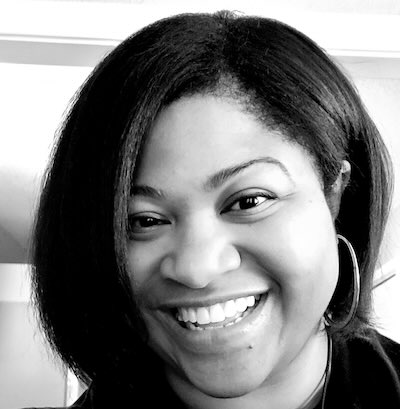Life After Consulting
Timing!
n
A few weeks ago I wrote u201cArriving for the Break,u201d wherein I poke fun at my way of being in the world, which might be called ,u201dcontrarian temporal synchronicity,u201d arriving when the band goes on break, buying high and selling low as investment strategy, and adopting new Technology after everyone else has moved on to the next new thing.
n
In keeping with this tradition, in January I published Traveling the Consulting Road: Career Wisdom for New Consultants, Candidates, and Their Mentors. Surprise! This year it looks like consulting firms are not hiring in the same numbers they did for the last two years; in fact, they are letting go substantial numbers of the bumper crop new hires of the previous two years.u00a0 Timing!
n
Consulting is always a boom and bust business. Consultants help leaders change their business in response to new competitors, new technology, new demographic or psychographic trends of customers, global and regional geopolitics and the economies of industries and nations. These influences move up and down in unpredictable ways.
n
During the past two years the United States has been recovering from the Covid 19 pandemic, which slowed business in general. Technology boomed for a while because of remote work, but then began to retrench. Electric vehicles boomed, after supply chains recovered, but then the charging station deficit hindered further expansion. Banks were hurt by interest rates, as was Real Estate and construction. Oil and gas declined in the pandemic because people werenu2019t driving, but then they were, and then not-so-much.
n
The consulting industry does well in periods of change characterized by consistent Growth (new strategies, Innovation)u00a0 or in periods of consistent decline (cost cutting, reorganization, continuous improvement). The industry does less well in periods of systemic instability.
n
So I got caught.
n
I wrote a book sharing what I learned as a consulting lifer: how to get hired, how to get promoted and be successful when the job changes as you rise. These are boom-time concerns, but I included some bust-time advice as well.
n
For anyone who doesnu2019t know the consulting industry, one of a firmu2019s primary challenges balancing the size and skill base of its workforce to the needs of its market. Firm partners have often lived through several boom and bust cycles. Especially painful memories were the times when they found clients but had no appropriate staff and had to turn work down or delivered poorly. These senior people often talk about u201chiring ahead of the curve this time.u201d
n
These same partners seem less concerned about having too many staff. This pain just isnu2019t as personal (for them); they just cut staff.
n
Most large firms have an u201cup or outu201d or u201cgrow or gou201d policy. This means every so often consultants are evaluated not just on current performance, but on promotion potential. If, in the view of partners, with input from managers, if you canu2019t grow, you have to go, or if you canu2019t go up, you must go out. u00a0The great un-leavening can happen anytime, but often happens in the spring, in time to make room for the new cadre of hires from university or business school. At the end of first quarter, the firm notifies certain staff members that there are u201cconcerns,u201d about performance. The idea is the firm keeps the best performers it hired and allows the bottom of the distribution to u201cget on with the value-added part of their career,u201d (someplace else).
n
At the beginning of April, Fortune magazine reported that McKinsey had given an unusually high number of u201cconcerns noticesu201d in March. A McKinsey Human Resources spokesperson commented, (somewhat defensively?) that the u201cperc3ntage of concerns this year was absolutely in line with previous years.u201d The story went on to describe the tens of thousands of potentially unemployed consultants across the major firms and how this yearu2019s cadre of new consultants was likely to be significantly smaller.
n
Perfect – just in time for my booku2019s second quarter sales. Timing!
n
Perhaps you got caught too?
n
This isnu2019t all about me. (Really?)
n
Maybe you were part of the large cadre or the last two years, or maybe you are a more mid-career consultant who for some reason has come a cropper on the u201cconcerns listu201d this year. Maybe you were hoping to get one of what you now know to be fewer consulting job offers this year. Maybe you even had a summer internship at a big consulting firm last year and the offer didnu2019t materialize or was rescinded, (yes, they do that sometimes).
n
It’s time to get creative, resilient and determined. Here are a few ideas:
n
If you are Inside a firm:
n
- n
- No whining! Consultants can be a whiny bunch – they whine about clients. They whine about staffing. They whine about the Travel, but whining will not help you in this situation. Yeah, itu2019s u201cnot your fault, they over-hired.u201d Yeah, it may be more political than it should be, (like the rest of life).Yeah, u201cnot everybody is a salesman.u201d Suck it up and act.
- Seriously look at your concerns:n
- n
- If you are under-applied or under-utilized u2013 look where you might get staffed. Is there firm research that needs to be done? Look at the firm thought leaders -who is writing a book or might write one? Do you know anyone who you might connect a selling partner? What projects might be extending or expanding? (Yes, I know that u201cstaffing yourselfu201d is frowned upon in most firms. I also know that most successful consultants get forgiven for doing that occasionally)
- If you are a manager with u201cconcernsu201d u2013 Are you behind schedule, or over budget – get help. Are there people management complaints -ask for a coach.
- Are you not meeting sales goals – extend or expand where it is reasonable. (It does you no good to annoy clients by selling inappropriately.)
- If you made a mistake or annoyed someone powerful – Apologize and ask for another chance. I didnu2019t do this enough in my career, but Iu2019ve learned that humble pie is nutritious for careers.
n
n
n
n
n
- Start a firm or u201cgo independentu201d u2013 This is definitely not as easy as it sounds. If you will accept one piece of advice from someone who spent twenty three years working for myself as a consultant – have a client first.
- When you gotta go- Recognize that it not the end of the worldn
- n
- Ask for and take as much severance and outplacement help as you can get.
- Look at smaller consulting firms, which often have different business cycles than the larger firms. Recognize that youu2019ll be a newbie all over again even if they expect you to u201chit-the-ground-running.u201d
- Look at university and business school consulting firms, which sometimes look for advisors and keeps your hand in the industry for when times improve.
- Look at forming internal consulting firms for clients in a single discipline.
- Look at former employers or their competitors or client companies and their competitors. (Yes, of course, you still have to respect confidential information.)
- Recognize that joining a regular business is very different than t joining a consulting firm. Assimilate.
n
n
n
n
n
n
n
n
n
n
n
n
If you are outside, hoping to get hired:
n
- n
- No whining u2013 (See above.) Also, u201cyeah, itu2019s really not fair to rescind an offer.u201d
- Decide to go for a consulting job anyway- Sure, it will be more competitive this year. The firms may only show up at the Ivy League and the major business schools this year and make a lot fewer offers. Difficult? Yup. Challenging? Absolutely, but not impossible. A few ideas: (these ideas may help get an internship as well.)n
- n
- Look at smaller firms, small industry specialists where you have industry experience, or those who hire generalists in people stuff.
- Look at non-profit consulting firms around issues that you care about and have volunteered in.
- Consider staying on at the university or grad school consulting firm and try again next year. Even if you work somewhere else attend the consulting club programs if you can.
n
n
n
n
- Get a job with a prestige firm in industry and try again later u2013 consulting firms often hire from the Fortune 1000.
- Start a business or get hired by a start-up. Consulting firms love the work ethic of entrepreneurs and the everybody-does-everything-all-the-time culture of start-ups.
n
n
n
n
n
There is life outside of consulting.
n
Some of it even has the same urgent problem-solving and change-driven learning as consulting. Maybe write a book. Just be sure to get your timing right.
n
n
Ill-timed perhaps, but still useful.
n

n
EBooks are now available in many places. Print is only available on Amazon (for now) but will be coming soon to a bookstore near you.
n
I would be grateful if you read it. Thanks
“,”tablet”:”
Timing!
n
A few weeks ago I wrote u201cArriving for the Break,u201d wherein I poke fun at my way of being in the world, which might be called ,u201dcontrarian temporal synchronicity,u201d arriving when the band goes on break, buying high and selling low as investment strategy, and adopting new technology after everyone else has moved on to the next new thing.
n
In keeping with this tradition, in January I published Traveling the Consulting Road: Career Wisdom for New Consultants, Candidates, and Their Mentors. Surprise! This year it looks like consulting firms are not hiring in the same numbers they did for the last two years; in fact, they are letting go substantial numbers of the bumper crop new hires of the previous two years. Timing!
n
Consulting is always a boom and bust business. Consultants help leaders change their business in response to new competitors, new technology, new demographic or psychographic trends of customers, global and regional geopolitics and the economies of industries and nations. These influences move up and down in unpredictable ways.
n
During the past two years the United States has been recovering from the Covid 19 pandemic, which slowed business in general. Technology boomed for a while because of remote work, but then began to retrench. Electric vehicles boomed, after supply chains recovered, but then the charging station deficit hindered further expansion. Banks were hurt by interest rates, as was real Estate and construction. Oil and gas declined in the pandemic because people werenu2019t driving, but then they were, and then not-so-much.
n
The consulting industry does well in periods of change characterized by consistent growth (new strategies, innovation) or in periods of consistent decline (cost cutting, reorganization, continuous improvement). The industry does less well in periods of systemic instability.
n
So I got caught.
n
I wrote a book sharing what I learned as a consulting lifer: how to get hired, how to get promoted and be successful when the job changes as you rise. These are boom-time concerns, but I included some bust-time advice as well.
n
For anyone who doesnu2019t know the consulting industry, one of a firmu2019s primary challenges balancing the size and skill base of its workforce to the needs of its market. Firm partners have often lived through several boom and bust cycles. Especially painful memories were the times when they found clients but had no appropriate staff and had to turn work down or delivered poorly. These senior people often talk about u201chiring ahead of the curve this time.u201d
n
These same partners seem less concerned about having too many staff. This pain just isnu2019t as personal (for them); they just cut staff.
n
Most large firms have an u201cup or outu201d or u201cgrow or gou201d policy. This means every so often consultants are evaluated not just on current performance, but on promotion potential. If, in the view of partners, with input from managers, if you canu2019t grow, you have to go, or if you canu2019t go up, you must go out. The great un-leavening can happen anytime, but often happens in the spring, in time to make room for the new cadre of hires from university or business school. At the end of first quarter, the firm notifies certain staff members that there are u201cconcerns,u201d about performance. The idea is the firm keeps the best performers it hired and allows the bottom of the distribution to u201cget on with the value-added part of their career,u201d (someplace else).
n
At the beginning of April, Fortune magazine reported that McKinsey had given an unusually high number of u201cconcerns noticesu201d in March. A McKinsey Human Resources spokesperson commented, (somewhat defensively?) that the u201cperc3ntage of concerns this year was absolutely in line with previous years.u201d The story went on to describe the tens of thousands of potentially unemployed consultants across the major firms and how this yearu2019s cadre of new consultants was likely to be significantly smaller.
n
Perfect – just in time for my booku2019s second quarter sales. Timing!
n
Perhaps you got caught too?
n
This isnu2019t all about me. (Really?)
n
Maybe you were part of the large cadre or the last two years, or maybe you are a more mid-career consultant who for some reason has come a cropper on the u201cconcerns listu201d this year. Maybe you were hoping to get one of what you now know to be fewer consulting job offers this year. Maybe you even had a summer internship at a big consulting firm last year and the offer didnu2019t materialize or was rescinded, (yes, they do that sometimes).
n
It’s time to get creative, resilient and determined. Here are a few ideas:
n
If you are Inside a firm:
n
- n
- No whining! Consultants can be a whiny bunch – they whine about clients. They whine about staffing. They whine about the travel, but whining will not help you in this situation. Yeah, itu2019s u201cnot your fault, they over-hired.u201d Yeah, it may be more political than it should be, (like the rest of life).Yeah, u201cnot everybody is a salesman.u201d Suck it up and act.
- Seriously look at your concerns:n
- n
- If you are under-applied or under-utilized u2013 look where you might get staffed. Is there firm research that needs to be done? Look at the firm thought leaders -who is writing a book or might write one? Do you know anyone who you might connect a selling partner? What projects might be extending or expanding? (Yes, I know that u201cstaffing yourselfu201d is frowned upon in most firms. I also know that most successful consultants get forgiven for doing that occasionally)
- If you are a manager with u201cconcernsu201d u2013 Are you behind schedule, or over budget – get help. Are there people management complaints -ask for a coach.
- Are you not meeting sales goals – extend or expand where it is reasonable. (It does you no good to annoy clients by selling inappropriately.)
- If you made a mistake or annoyed someone powerful – Apologize and ask for another chance. I didnu2019t do this enough in my career, but Iu2019ve learned that humble pie is nutritious for careers.
n
n
n
n
n
- Start a firm or u201cgo independentu201d u2013 This is definitely not as easy as it sounds. If you will accept one piece of advice from someone who spent twenty three years working for myself as a consultant – have a client first.
- When you gotta go- Recognize that it not the end of the worldn
- n
- Ask for and take as much severance and outplacement help as you can get.
- Look at smaller consulting firms, which often have different business cycles than the larger firms. Recognize that youu2019ll be a newbie all over again even if they expect you to u201chit-the-ground-running.u201d
- Look at university and business school consulting firms, which sometimes look for advisors and keeps your hand in the industry for when times improve.
- Look at forming internal consulting firms for clients in a single discipline.
- Look at former employers or their competitors or client companies and their competitors. (Yes, of course, you still have to respect confidential information.)
- Recognize that joining a regular business is very different than t joining a consulting firm. Assimilate.
n
n
n
n
n
n
n
n
n
n
n
n
If you are outside, hoping to get hired:
n
- n
- No whining u2013 (See above.) Also, u201cyeah, itu2019s really not fair to rescind an offer.u201d
- Decide to go for a consulting job anyway- Sure, it will be more competitive this year. The firms may only show up at the Ivy League and the major business schools this year and make a lot fewer offers. Difficult? Yup. Challenging? Absolutely, but not impossible. A few ideas: (these ideas may help get an internship as well.)n
- n
- Look at smaller firms, small industry specialists where you have industry experience, or those who hire generalists in people stuff.
- Look at non-profit consulting firms around issues that you care about and have volunteered in.
- Consider staying on at the university or grad school consulting firm and try again next year. Even if you work somewhere else attend the consulting club programs if you can.
n
n
n
n
- Get a job with a prestige firm in industry and try again later u2013 consulting firms often hire from the Fortune 1000.
- Start a business or get hired by a start-up. Consulting firms love the work ethic of entrepreneurs and the everybody-does-everything-all-the-time culture of start-ups.
n
n
n
n
n
There is life outside of consulting.
n
Some of it even has the same urgent problem-solving and change-driven learning as consulting. Maybe write a book. Just be sure to get your timing right.
n
n
Ill-timed perhaps, but still useful.
n

n
EBooks are now available in many places. Print is only available on Amazon (for now) but will be coming soon to a bookstore near you.
n
I would be grateful if you read it. Thanks
n
“}},”slug”:”et_pb_text”}” data-et-multi-view-load-tablet-hidden=”true”>
Timing!
A few weeks ago I wrote “Arriving for the Break,” wherein I poke fun at my way of being in the world, which might be called ,”contrarian temporal synchronicity,” arriving when the band goes on break, buying high and selling low as investment strategy, and adopting new technology after everyone else has moved on to the next new thing.
In keeping with this tradition, in January I published Traveling the Consulting Road: Career Wisdom for New Consultants, Candidates, and Their Mentors. Surprise! This year it looks like consulting firms are not hiring in the same numbers they did for the last two years; in fact, they are letting go substantial numbers of the bumper crop new hires of the previous two years. Timing!
Consulting is always a boom and bust business. Consultants help leaders change their business in response to new competitors, new technology, new demographic or psychographic trends of customers, global and regional geopolitics and the economies of industries and nations. These influences move up and down in unpredictable ways.
During the past two years the United States has been recovering from the Covid 19 pandemic, which slowed business in general. Technology boomed for a while because of remote work, but then began to retrench. Electric vehicles boomed, after supply chains recovered, but then the charging station deficit hindered further expansion. Banks were hurt by interest rates, as was real estate and construction. Oil and gas declined in the pandemic because people weren’t driving, but then they were, and then not-so-much.
The consulting industry does well in periods of change characterized by consistent growth (new strategies, innovation) or in periods of consistent decline (cost cutting, reorganization, continuous improvement). The industry does less well in periods of systemic instability.
So I got caught.
I wrote a book sharing what I learned as a consulting lifer: how to get hired, how to get promoted and be successful when the job changes as you rise. These are boom-time concerns, but I included some bust-time advice as well.
For anyone who doesn’t know the consulting industry, one of a firm’s primary challenges balancing the size and skill base of its workforce to the needs of its market. Firm partners have often lived through several boom and bust cycles. Especially painful memories were the times when they found clients but had no appropriate staff and had to turn work down or delivered poorly. These senior people often talk about “hiring ahead of the curve this time.”
These same partners seem less concerned about having too many staff. This pain just isn’t as personal (for them); they just cut staff.
Most large firms have an “up or out” or “grow or go” policy. This means every so often consultants are evaluated not just on current performance, but on promotion potential. If, in the view of partners, with input from managers, if you can’t grow, you have to go, or if you can’t go up, you must go out. The great un-leavening can happen anytime, but often happens in the spring, in time to make room for the new cadre of hires from university or business school. At the end of first quarter, the firm notifies certain staff members that there are “concerns,” about performance. The idea is the firm keeps the best performers it hired and allows the bottom of the distribution to “get on with the value-added part of their career,” (someplace else).
At the beginning of April, Fortune magazine reported that McKinsey had given an unusually high number of “concerns notices” in March. A McKinsey Human Resources spokesperson commented, (somewhat defensively?) that the “perc3ntage of concerns this year was absolutely in line with previous years.” The story went on to describe the tens of thousands of potentially unemployed consultants across the major firms and how this year’s cadre of new consultants was likely to be significantly smaller.
Perfect – just in time for my book’s second quarter sales. Timing!
Perhaps you got caught too?
This isn’t all about me. (Really?)
Maybe you were part of the large cadre or the last two years, or maybe you are a more mid-career consultant who for some reason has come a cropper on the “concerns list” this year. Maybe you were hoping to get one of what you now know to be fewer consulting job offers this year. Maybe you even had a summer internship at a big consulting firm last year and the offer didn’t materialize or was rescinded, (yes, they do that sometimes).
It’s time to get creative, resilient and determined. Here are a few ideas:
If you are Inside a firm:
- No whining! Consultants can be a whiny bunch – they whine about clients. They whine about staffing. They whine about the travel, but whining will not help you in this situation. Yeah, it’s “not your fault, they over-hired.” Yeah, it may be more political than it should be, (like the rest of life).Yeah, “not everybody is a salesman.” Suck it up and act.
- Seriously look at your concerns:
- If you are under-applied or under-utilized – look where you might get staffed. Is there firm research that needs to be done? Look at the firm thought leaders -who is writing a book or might write one? Do you know anyone who you might connect a selling partner? What projects might be extending or expanding? (Yes, I know that “staffing yourself” is frowned upon in most firms. I also know that most successful consultants get forgiven for doing that occasionally)
- If you are a manager with “concerns” – Are you behind schedule, or over budget – get help. Are there people management complaints -ask for a coach.
- Are you not meeting sales goals – extend or expand where it is reasonable. (It does you no good to annoy clients by selling inappropriately.)
- If you made a mistake or annoyed someone powerful – Apologize and ask for another chance. I didn’t do this enough in my career, but I’ve learned that humble pie is nutritious for careers.
- Start a firm or “go independent” – This is definitely not as easy as it sounds. If you will accept one piece of advice from someone who spent twenty three years working for myself as a consultant – have a client first.
- When you gotta go- Recognize that it not the end of the world
- Ask for and take as much severance and outplacement help as you can get.
- Look at smaller consulting firms, which often have different business cycles than the larger firms. Recognize that you’ll be a newbie all over again even if they expect you to “hit-the-ground-running.”
- Look at university and business school consulting firms, which sometimes look for advisors and keeps your hand in the industry for when times improve.
- Look at forming internal consulting firms for clients in a single discipline.
- Look at former employers or their competitors or client companies and their competitors. (Yes, of course, you still have to respect confidential information.)
- Recognize that joining a regular business is very different than t joining a consulting firm. Assimilate.
If you are outside, hoping to get hired:
- No whining – (See above.) Also, “yeah, it’s really not fair to rescind an offer.”
- Decide to go for a consulting job anyway- Sure, it will be more competitive this year. The firms may only show up at the Ivy League and the major business schools this year and make a lot fewer offers. Difficult? Yup. Challenging? Absolutely, but not impossible. A few ideas: (these ideas may help get an internship as well.)
- Look at smaller firms, small industry specialists where you have industry experience, or those who hire generalists in people stuff.
- Look at non-profit consulting firms around issues that you care about and have volunteered in.
- Consider staying on at the university or grad school consulting firm and try again next year. Even if you work somewhere else attend the consulting club programs if you can.
- Get a job with a prestige firm in industry and try again later – consulting firms often hire from the Fortune 1000.
- Start a business or get hired by a start-up. Consulting firms love the work ethic of entrepreneurs and the everybody-does-everything-all-the-time culture of start-ups.
There is life outside of consulting.
Some of it even has the same urgent problem-solving and change-driven learning as consulting. Maybe write a book. Just be sure to get your timing right.
Ill-timed perhaps, but still useful.

EBooks are now available in many places. Print is only available on Amazon (for now) but will be coming soon to a bookstore near you.
I would be grateful if you read it. Thanks
The post Life After Consulting appeared first on Wisdom from Unusual Places.
Originally Published on https://wisdomfromunusualplaces.com/blog/
























